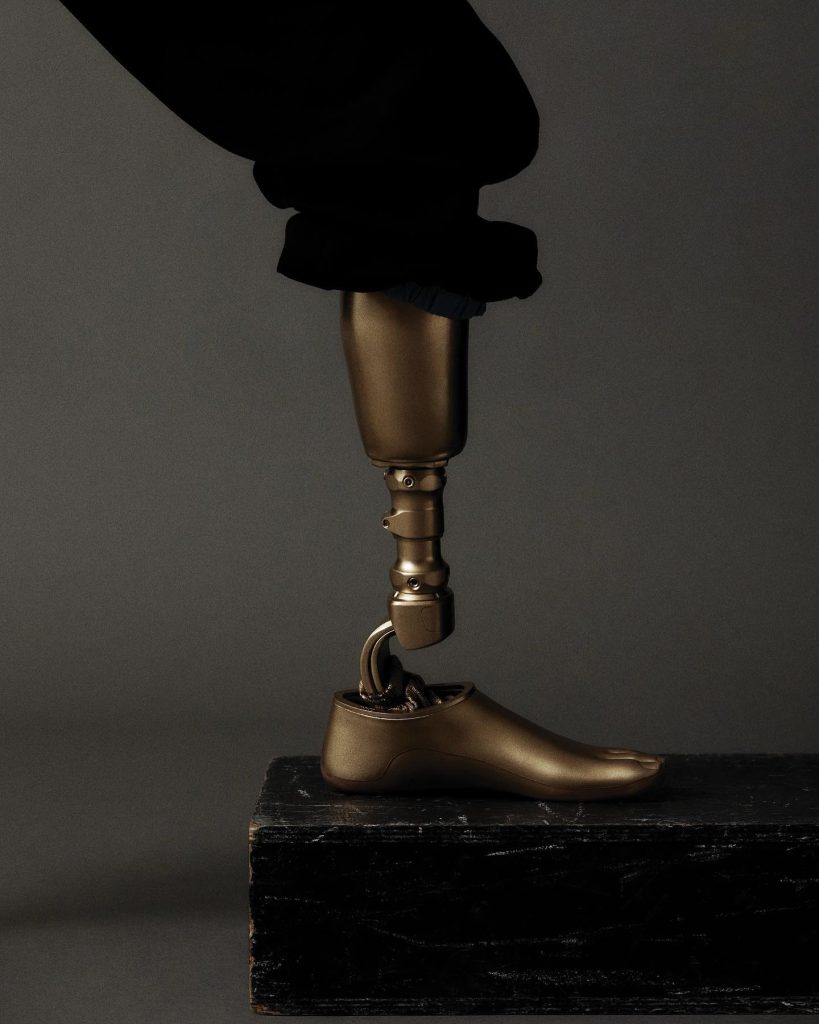Lauren water: 10 minutes until death
Laura was 10 minutes away from death and lost both legs through a tampon - but that didn't stop her from becoming a successful model.

A model told how she almost died because she got the toxic shock syndrome (TSS) through a tampon. Lauren Wasser, 35, from Santa Monica, California, which had to be amputated by TSS both legs, reflected in the podcast “The Diary of a CEO” with Steven Bartlett on the continued effects of their near -death experience.
In 2012, a successful 24-year-old model from Los Angeles rejected a basketball scholarship to pursue her aspiring career in the fashion industry. However, her life took an unexpected turn when she fell ill, which initially looked like flu -like symptoms. She was found in her apartment on the edge of death, unconscious and covered with waste, whereupon her mother called an ambulance.


She was taken to the hospital, where her temperature rose to a dangerous 41 degree, which led to a heart attack and multiple organ failure. It was then put into an artificial coma. Only after a doctor ordered a test for infectious diseases did it diagnose the toxic shock syndrome (TSS), a rare and life -threatening bacterial infection, which is often misjudged due to its similarity to other diseases.
Although their lives could be saved, the damage that the wound fire had caused on their legs were irreversible. Both limbs had to be amputated below the knee. When she describes her suffering, she described the unbearable pain and compared it to the feeling that her feet would go up in flames. The right leg was even more damaged, so it had to be amputated to ensure its survival.


Determined to raise awareness of the potential risks of tampons, it is now campaigning for legislation to promote transparency in women's hygiene products. Your goal is to warn women and young girls of TSS and ask them to pay attention to their health and the products they use.
However, Lauren revealed that she first learned that her leg had to be amputated when she noticed a phone call with a nurse.
She said: "I lie there, my room is empty and I hear a nurse behind a curtain who says:" I have a young girl here, she is 24 years old, who has to amputate the right leg below the knee. "


I remember that I looked around and thought: "Talk to me, she says that I have to be amputated?" And I just started screaming, I screamed for my mother, my godfather, I screamed for everyone and said: "Don't let that person touch me".
I was not aware of how serious the situation was for me. It was the first time that I heard the word amputation.
Lauren chose an operation to save her left leg, but the time after that was very difficult. After the amputation, she fought with complications and severe pain. It was tied to the wheelchair for a long time. During this time she had thoughts of suicide, but she stuck to life with inner strength. Now she draws attention to the toxic shock syndrome and draws attention to the ingredients of menstrual products for women. Together with Madeline Mosby, they are committed to positive changes. Madeline founded the Dontshockme.org Foundation and is committed to the adoption of laws.


What is toxic shock syndrome?
The toxic shock syndrome (TSS) is a rare but highly dangerous bacterial infection caused by normally harmless staphylococcus aureus or streptococcal bacteria. These bacteria, which usually settle on the skin, can get into the bloodstream and release harmful toxins. Due to its similarity to other diseases and its rarity, TSS can be difficult to diagnose.
The symptoms of TSS include suddenly high fever (over 38.9 ° C) as well as flu-like symptoms such as headache and muscle pain, sore throat and cough. Nausea, vomiting, diarrhea, dizziness and confusion can also occur. TSS mainly affects women, especially during menstruation. Women who use tampons, are freshly baked mothers or use internal contraceptives such as diaphragms are exposed to a higher risk. Introducing tampons overnight is a common practice that can contribute to the TSS risk.
Treatment includes antibiotics to combat infection, oxygen to support breathing, fluid to avoid dehydration and organ damage as well as medication for regulating blood pressure. A dialysis may be necessary for kidney failure, and in severe cases, a surgical intervention to remove dead tissue or, in rare cases, amputation of the affected areas may be necessary.
Preventive measures include the use of tampons with the slightest absorbency for your own blood flow, the change between tampons and women's bandages as well as good hand hygiene before and after. Tampons should be changed according to the instructions on the packaging, usually every four to eight hours.



Why Sunshine is your ultimate secret weapon of weight loss

